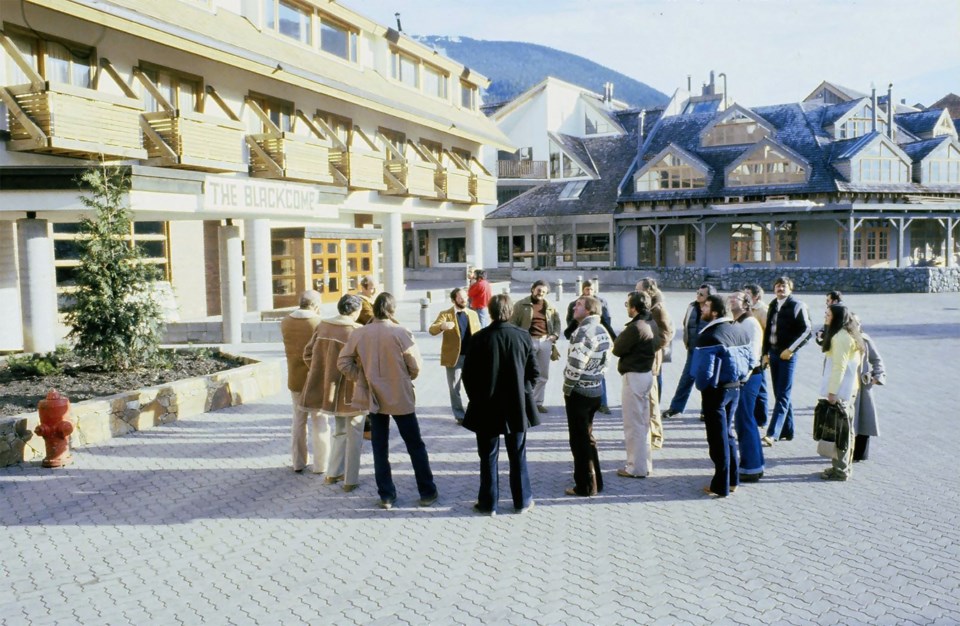As far as we know, Drew Meredith never did win the lottery, as discussed in our last Museum Musings about the Whistler Question’s April Fool’s article of 1982. Other prank articles published by the Question, however, were less far-fetched, such as the ones published in 1984.
The Question’s banner headline for March 29, 1984 read “SoCreds OK User Tax.” In the article, editor Kevin Griffin described how the provincial government had “set a Canadian precedent” when it made changes to the Municipal Act allowing resort towns with a population under 10,000 “to levy a local sales tax of up to two per cent” on liquor sales “by the drink,” day ski passes, meals, hotel, short-term rentals, and retail goods. The revenue would be collected by the province and then redistributed back to resort-town municipal governments.
In the article, Minister of Municipal Affairs Bill Curtis reportedly said the government recognized resort towns often “unduly tax local ratepayers to provide needed resort amenities” and this change was meant to address that tax burden.
Whistler’s Mayor Mark Angus was also quoted in the article pointing out similar taxes used in American ski resorts such as Sun Valley and Aspen. He and the Whistler Resort Association were both described as being in support of the new tax, and expected tax money to go towards park maintenance, snow clearing, a free bus system, and other projects.
Like in previous years, the front page of the Question included other articles along the same line: one detailing the proposed free bus system and another about a fountain that would be built with money from the new tax to improve Village Square, which was described as “a black hole” and a “place without a focus.”
Readers would have quickly realized there was no such tax, and therefore no free buses or new fountain in the works (though there had been a shuttle bus operating the previous year funded by a municipal grant, advertising, and passenger fares). Towards the end of the main article, quotes from Al Raine were followed by the statement: “Raine also added that he didn’t mind being quoted in an April Fool’s story because he agreed with the thrust of the article anyway.”
According to the accompanying editorial, the topic of a user tax was chosen because the Question wanted to write articles they would like to see in the paper, and to generate discussion among the community and levels of government. The paper also asked visitors to the resort what they thought of a municipal sales tax for their “Whistler’s Answers” feature. Though most were against paying more for their visit, one visitor from San Francisco said, “I wouldn’t mind at all. A lot of American visitors look at the exchange rate and it’s not too bad. If they can take two per cent and turn it around to make it work for the community, it’s all right.”
The following week, three residents were asked what they thought of the April Fool’s stories, and Mark Angus was quoted (truthfully this time): “As long as you take it lightly no damage is done,” and one resident said it was more believable because they had seen user taxes in other resorts. Not everyone appreciated the joke articles, however. One letter to the editor the following week was unimpressed and claimed it was “presumptuous” to assume readers would read the complete story and explanatory editorial rather than just the headline; a headline, they argued, that could prevent visitors from returning.
Throughout the month of April, the Question published other articles about how such taxes worked in various American resorts, where Whistler’s funding currently came from, and more. In 1987, the provincial government established the Municipal and Regional District Tax (MRDT), which applies to short-term tourist accommodations. While not exactly like the tax proposed by the Question in 1984, the MRDT has similar aims and the paper was able to report on the story without having to create its own quotations.




